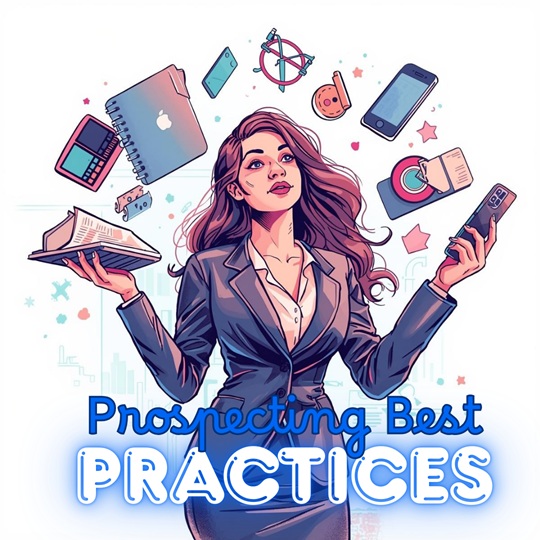Being a CEO for a growing start-up is demanding. People want to connect with me all the time to pitch their goods and services. Most of it never ends up seeing the light of day, but often there are cold emails that catch my attention.
I'm happy to share my thoughts on what motivates me to open emails, things I've seen that work, as well as what other industry leaders have shared.
First off, reaching out to any CEO is a challenge. Executives are busy, always on the go, and often overloaded with messages. The trick to breaking through the noise? Keep it short, clear, and personalized.
As someone who’s read and sent thousands of cold emails over my career, I can tell you first-hand that the ones that succeed follow a simple rule:
Stick to three spaced sentences max.
Let’s unpack why this works, how you can apply it, and how a short, impactful email can land you meetings with hard-to-book CEOs or executives, like me.
Related: How to Find CEO Email
Why short, simple emails are so impactful for CEOs
When CEOs check their emails, it’s rarely while sitting comfortably in front of a big screen, savoring every word. Instead, we’re on the move—between meetings, in an elevator, or just squeezing in a few minutes before the next call. On the small screen of a phone, long-winded emails look like a wall of text. It’s overwhelming and easy to ignore.
3 reasons this email approach always win:
- It shows respect for the reader's time – A CEO’s time is incredibly valuable. By getting straight to the point, you’re showing that you respect their limited availability.
- It’s easy to skim – CEOs are quick readers. A short email allows them to grasp the core message instantly.
- It reduces friction – A short message requires less effort to read and respond to, increasing the chances of a quick reply.
Think of it like this: if your email can be absorbed in less than 10 seconds, you’re already winning. Your goal is to make it easy for the CEO to understand what you’re offering, why it matters to them, and what the next step is.

How to start trimming unnecessary noise in emails
Take a look at your last few cold emails. Are there paragraphs you can trim or sentences you can simplify?
A good rule of thumb is to eliminate any words that don’t add direct value.
For example, instead of saying, “I wanted to reach out to introduce myself and my company, as I believe we might have a solution that could help with some of the challenges you’re facing,” just say, “I help companies like yours solve [specific challenge]. Here’s how…”
Skip the jargon and focus on value:
One of the biggest mistakes I see in cold emails is overuse of jargon.
Fancy terms and industry buzzwords can make your email sound impressive, but they often cloud the core message. CEOs don’t have time to decode what you’re saying.
They want clarity, not complexity.
Example of too much jargon:
Imagine you’re reaching out to a CEO with an email that reads like this:
- “Our innovative SaaS platform synergizes multiple business processes, streamlining operations and enhancing ROI across various organizational touchpoints.”
This sounds impressive, but it’s vague and filled with jargon. Compare that to a more direct message:
- “Our software reduces time spent on [specific task] by 50%, saving your team hours every week.”
The second example is clearer, actionable, and instantly communicates value.
How to simplify your message to CEO:
- Use simple language – If you wouldn’t use a term in everyday conversation, don’t put it in your email.
- Be direct about the benefits – Instead of explaining every feature, highlight the top benefit that would matter most to the CEO.
- Show specific results – CEOs care about results. If you can quantify the value you provide, such as time saved or revenue generated, they’re far more likely to pay attention.
- Before sending, read your email out loud. If it sounds overly complex or stiff, rewrite it to make it sound more conversational and to-the-point.
Related: 15 Cold Email Outreach Tips and Templates
Personalization is the ultimate hook and bait
The most effective emails are those that feel personalized. This doesn’t mean you need to spend hours researching every single detail about the CEO, but a small touch of personalization goes a long way. It shows that you’re not just blasting out the same email to hundreds of people.
So what does personalization look like?
Personalization doesn’t have to be complex. It can be as simple as referencing something specific to the CEO’s business or mentioning a recent company achievement.
Here are a few examples of effective personalization:
- “Congrats on your recent expansion into [new market]. We helped [similar company] streamline their operations during a similar growth phase.”
- “I noticed [CEO’s company] is focusing on [specific area]. We specialize in helping companies excel in exactly this.”
- “I enjoyed listening to you on the recent podcast episode about [topic]. We actually focus on helping other companies do this.”
Mentioning something relevant to the CEO’s company, you immediately make your email feel more tailored and less like a generic sales pitch.
The Three-Sentence Structure for CEO with Personalization:
Now, it’s time to put it all together in a simple, easily replicable format.
Here’s a structure you can use to keep it short, impactful, and personalized:
- Sentence 1: Mention a specific pain point or a goal relevant to the CEO’s company.
- Sentence 2: Show how you or your company can address that need or help achieve that goal.
- Sentence 3: Make a simple, actionable request, like a quick call.
Example:
“Hi [CEO’s Name], I noticed that [Company] is expanding in [new market]. Our solutions helped [similar company] streamline their operations during a similar growth period. Could we schedule a 10-minute call next week to explore this?”
This format respects their time while clearly demonstrating how you can add value.
Related: Nail the Sales Pitch with the Big 3

Short and simple emails to CEOs lead to more meetings
Let’s bring it all together. In my own experience, I consistently book meetings with CEOs and other executives when I keep my outreach brief, relevant, and respectful of their time. These guidelines aren’t just theory—they work. I see the results every day, both in the meetings I book and the responses I get.
If you’re struggling to get responses from CEOs, take a look at the emails you’re sending. Are they overly wordy? Do they contain jargon that dilutes your message? Are they missing personalization that could make them more engaging? Start refining your approach with the three-sentence rule, and watch as your response rates improve.
Final Tips for Writing Cold CEO Emails That Get Replies
To wrap up, here are a few additional tips to help you craft cold emails that CEOs will actually read and respond to:
- Use a compelling subject line – Think of it as the headline to an article. It should be direct and relevant, like “Idea to reduce [specific pain point].”
- Be specific with your request – Instead of asking for a vague meeting, suggest a 10-minute call to discuss [specific benefit].
- Follow up strategically – If you don’t get a response, follow up with a short, polite reminder a few days later. CEOs often need a nudge due to their packed schedules.
- Always add value – Whether it’s a tip, an insight, or a resource, give them a reason to remember you beyond just your product or service.
Final thought
When you’re reaching out to busy executives, brevity and clarity are your best tools. By keeping your emails short, using simple language, and adding a touch of personalization, you’ll stand out in a crowded inbox and increase your chances of getting a response. Remember, CEOs are just people with packed schedules. Respect their time, get to the point, and offer something of value.
If these tips help you book more appointments with hard-to-reach CEOs, let me know in the comments! And if you’re looking for more strategies to boost your sales, hit that follow button to stay updated.
Start applying these principles today, and you’ll be surprised at the doors a simple, well-crafted email can open. Good luck, and may your next email be the one that lands you that crucial meeting!
















